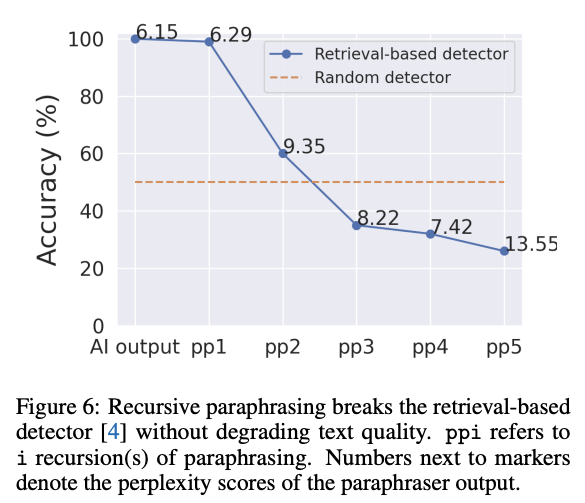Will AI win the next Pulitzer Prize?
Willem
CTO @ PromptArchitects

Blurring the lines — AI-generated content and the future of creativity
As we stand at the dawn of the artificial intelligence (AI) revolution, we find ourselves in a world filled with wonder, anticipation, and even a little trepidation. The rapid development of large language models (LLMs) like OpenAI's GPT-4 is reshaping content creation and consumption across diverse fields, pushing the limits of human imagination. With AI's growing ability to generate impressively humanlike content, we must ask ourselves: Is it only a matter of time before an AI-authored work captures the prestigious Pulitzer Prize?
A recent research paper published on Arxiv delves into the complexities of AI-generated texts and the challenges of detecting them. The study presents both theoretical and empirical evidence highlighting the limitations of state-of-the-art AI text detectors. Despite these limitations, AI's prowess in crafting original, captivating, and practically indistinguishable content from human-authored creations continues to grow.
Paper details: "Can AI-Generated Text be Reliably Detected?" Vinu Sankar Sadasivan, Aounon Kumar, Sriram Balasubramanian, Wenxiao Wang, Soheil Feizi
As AI-generated text becomes more sophisticated, we must examine the implications for the future of journalism, literature, and creative content as a whole. Could an AI-based work someday be awarded the coveted Pulitzer Prize? If so, what will this mean for human authors who traditionally held this title?
The rise of AI-generated content
The advent of powerful AI-driven language models like GPT-4 has ignited a new era of content generation. These models can now effortlessly write articles, essays, poems, or even song lyrics, as well as answer questions or complete documents. The applications are seemingly limitless, with each iteration improving on the previous.
However, alongside these advancements in language generation comes the potential for misuse, such as plagiarism, fake news creation, spamming, or even large-scale social engineering. Consequently, the demand for detecting AI-generated content has grown, resulting in new detectors employing watermarking, zero-shot methods, and retrieval-based techniques.

Yet, the researchers' paper reveals that even seemingly robust detectors are vulnerable to evasion, using novel strategies like paraphrasing attacks, as shown in the image above. By carefully applying several paraphrasing techniques, the researchers were able to evade the detectors' detection with a high success rate.
The inevitable AI Pulitzer controversy
The evolution of AI language models and their content-generating abilities raises a thought-provoking question: If AI-generated content becomes virtually indistinguishable from human-authored work, could it ever be deemed worthy of a Pulitzer Prize? This prestigious award, traditionally reserved for the finest examples of journalistic and literary excellence, might be within AI's grasp as language models become increasingly skilled at mimicking human writers.
Nevertheless, bestowing a Pulitzer upon an AI-generated work would likely unleash a maelstrom of debate and controversy. Questions regarding authorship and originality would take center stage since AI's ability to convincingly mimic human writing poses substantive challenges for both creators and consumers. AI’s potential to seamlessly blend fact and fiction, producing content that blurs the line between artistry and deception, could force us to reevaluate our definitions of creativity, authenticity, and merit.
A wake-up call for creative content creators
As AI-authored content continues to advance, it is evident we stand at the brink of a new era in content creation and consumption. The ever-narrowing gap between human and AI-generated text presents an opportunity to reflect on our understanding and assessment of creative content.
The prospect of an AI-generated work winning a Pulitzer Prize signifies both the fantastic progress in artificial intelligence and the challenges ahead for the world of creativity. It’s crucial to maintain ethical and responsible usage of AI-generated content by fostering honest and open conversations about the implications of these developments.
In a world where AI's creative prowess is increasingly difficult to distinguish from human ingenuity, vigilance and adaptability are vital when assessing content. Encouraging collaboration between humans and AI can ensure that the technology serves as a tool to supplement human creativity, not replace it. Although it remains uncertain whether an AI-generated work will win a Pulitzer Prize in the near future, the conversation surrounding the responsible use of AI-generated content is one we must embrace wholeheartedly.
If you have an idea that requires unique content generation, we would love to hear from you!
